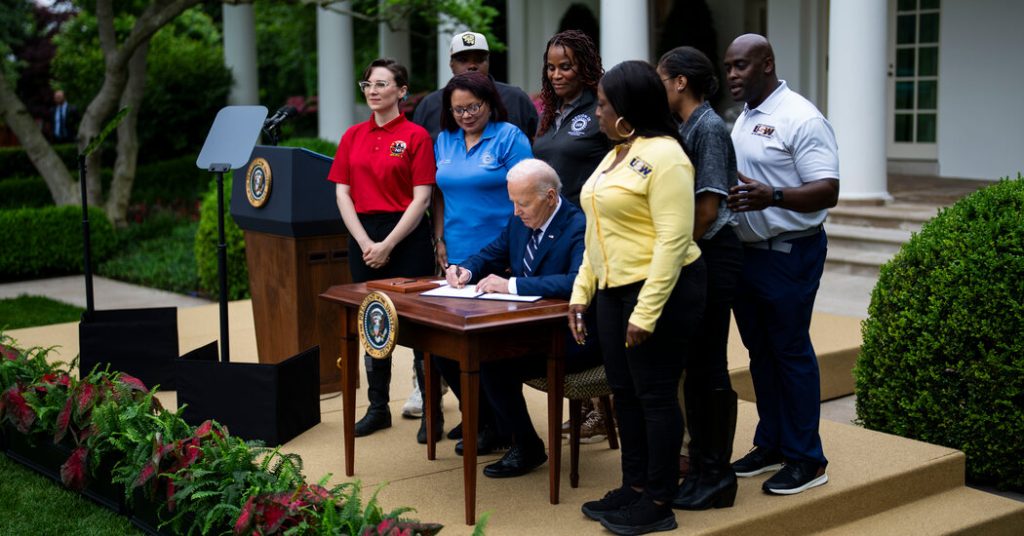For the first two decades of the 21st century, American consumers benefitted from lower prices on a variety of goods due to imports from China and emerging economies. This led to the closure of American factories and the loss of over a million jobs. Discount stores and online retailers like Walmart and Amazon thrived selling these low-cost imported goods. However, in response to widespread job loss and economic stagnation, voters elected presidents in 2016 and 2020 who promised to address trade with China. Both former President Donald Trump and President Biden have taken actions to revive American factories by making it more expensive to purchase Chinese goods.
President Biden recently escalated tariffs imposed by Mr. Trump, signaling a shift away from decades of prioritizing trade with China for lower-cost products over the loss of American manufacturing jobs. The imposition of a 100 percent tariff on Chinese electric vehicles reflects a new era of trade policy that values domestic manufacturing over cheaper imported goods. Both Democrats and Republicans are now moving towards severing ties with China due to concerns over labor practices, intellectual property theft, and unfair subsidies for Chinese factories.
The current political landscape is uncertain, with different visions of how the American economy should interact with China. While Trump advocates for restricting trade and raising tariffs, Biden wants to protect strategic industries like clean energy and semiconductors through regulation and tariffs. Economists have criticized both candidates’ approaches, warning that cutting off Chinese competition could slow economic growth and lead to overspending on less innovative domestic products. Mr. Biden’s administration is also facing pressure to ensure that its policies help drive down prices of American-made goods to avoid backlash from voters.
Inflation concerns due to supply chain issues and government stimulus are impacting the political landscape, with voters expressing discontent. Both Biden’s and Trump’s approval could be affected by persistently high prices from new tariffs. While there is uncertainty surrounding the new era of China policy, some economists believe in a return to more traditional views of trade policy, emphasizing global rule enforcement, national innovation investment, and worker retraining. However, there is little political appetite for such policies, with calls for industrial policy that supports innovation and industry growth.
Economists like David Autor acknowledge the need for a shift in trade policy but warn of the economic risks and the need for well-designed approaches. While Trump’s tariff-focused strategy did not bring back many jobs, it did win votes. Biden’s efforts to protect strategic industries with tariffs and subsidies are facing scrutiny, with calls for stricter rules on industry recipients of government aid. As the new era of trade policy unfolds, it remains to be seen how the public will respond to potential changes in prices and market dynamics resulting from increased protectionism and support for domestic industries.


